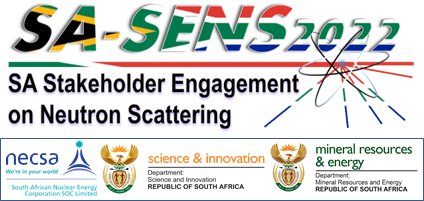Speaker
Description
Heterogeneous catalysis plays a pivotal role in the chemical manufacturing sector. Efficient catalyst design enables reactions to be performed at large-scale and for extended periods of time. Typically, product selectivity is a primary design parameter, with waste minimisation central to the economic viability of the commercial process. Historically, the implementation of heterogeneous catalysis in large-scale chemical synthesis has tended to rely on empirical testing. However, increasingly, there is a driver to better understand fundamental physico-chemical characteristics of candidate catalytic systems. Topics of interest to the catalytic chemist include (i) the mechanism of reaction, (ii) the form of the adsorption complex, (iii) adsorption and desorption characteristics of key molecular entities, (iv) accessibility of chemical pathways under specified conditions, (v) diffusion of reagents/products within the catalyst matrix, (vi) a molecular perspective of catalyst deactivation, etc. A combination of conventional reaction testing and applied molecular spectroscopy is an established means of addressing these topics. Increasingly, neutron scattering techniques, such as inelastic neutron scattering (INS) and quasi-elastic neutron scattering (QENS), are providing useful additions to the catalytic chemist’s spectroscopic toolkit [1].
The presentation will explain how INS can provide a fresh perspective to the task of catalyst characterisation, with the inspection of samples that have experienced extended periods of time-on-stream noted as being a major advantage of the methodology. The effectiveness and usefulness of a neutron spectroscopy-based approach will be illustrated by two examples of economically relevant catalytic reactions: (i) Fischer-Tropsch synthesis over iron-based catalysts [2] and (ii) the methanol to hydrocarbon reaction over a ZSM-5 zeolite catalyst [3].
References
1. P.W. Albers, D. Lennon and S.F. Parker, Experimental Methods in the Physical Sciences, Neutron Scattering - Applications in Biology, Chemistry, and Materials Science, Eds. F. Fernandez-Alonso and D.L. Price, 49 (2017) 279-348.
2. N.G. Hamilton, I.P. Silverwood, R. Warringham, J. Kapitán, L. Hecht, P.B. Webb, R.P. Tooze, S.F. Parker and D. Lennon, Angewandte Chemie International Edition, 52 (2013) 5608-5611.
3. A. Zachariou, A.P. Hawkins, Suwardiyanto, P. Collier, N. Barrow, R.F. Howe, D. Lennon and S.F. Parker, ChemCatChem, 13 (2021) 2625-2633.
-
Research in the David Lennon group involves surface chemistry and in particular applying a variety of spectroscopic techniques to probe the interaction of atoms and molecules on well-defined metal surfaces. Such substrates include supported metal catalysts as well as metal single crystals. An increased understanding of the structure and reactivity at surfaces is of fundamental importance in heterogeneous catalysis. Examples of current projects are (i) the development and optimisation of new supported metal catalysts for large scale industrial processes, (ii) spectroscopic investigations of heterogeneous catalyst systems and (iii) surface science experiments on metal single crystals. The majority of his work has industrial applications.

